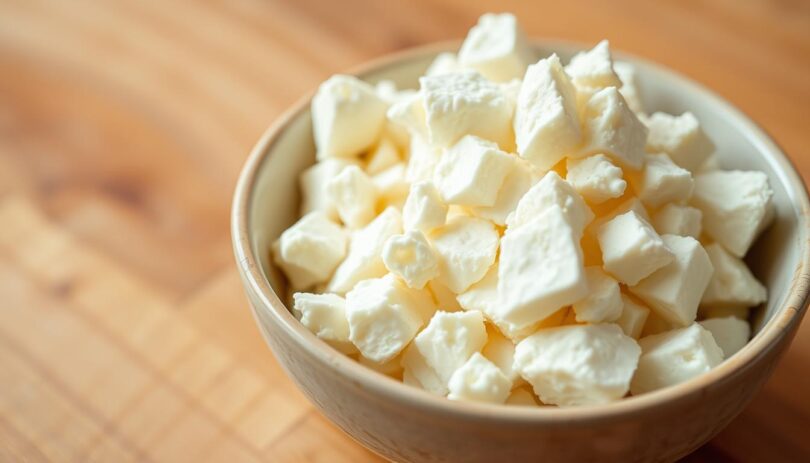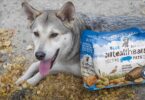As a pet owner, you might wonder what human foods are safe for your furry friend. Cottage cheese, with its creamy texture and mild flavor, often comes up in conversations about dog treats. But is it a good choice for your dog?
Cottage cheese is made by curdling milk, creating a product rich in protein, calcium, and essential nutrients. It’s low in fat and calories, making it a popular option for pet owners looking for a healthy treat. However, like any food, moderation is key to ensuring it benefits your dog without causing harm.
Feeding cottage cheese to your dog can offer several advantages. It supports bone health with its high calcium content and aids digestion with probiotics. Yet, it’s important to avoid overfeeding, as excessive dairy can lead to stomach issues, especially in lactose-intolerant dogs. Always consult your vet to determine the right portion size for your pet.
For more information on keeping your dog’s diet safe and healthy, visit our dog food recall information page.
Understanding Cottage Cheese: What It Is and Its Nutritional Value for Dogs
Curious about what your dog can safely eat? Cottage cheese is a popular option, but it’s essential to understand its makeup and benefits. This dairy product is made by curdling milk with an acid like vinegar, then draining the whey, leaving behind a lump of curd. The result is a low-fat, low-calorie food rich in protein, calcium, and vitamins.
Low-fat cottage cheese is particularly good for dogs, as it provides essential nutrients without excess fat. Protein in cottage cheese supports muscle growth and repair, while calcium strengthens bones. Additionally, it contains vitamins like B12, D, and E, which boost your dog’s immune system and overall health.
For dogs with lactose intolerance, low-lactose or lactose-free options are available, making it a versatile choice. However, always introduce it gradually and in small amounts to monitor for any digestive issues. Moderation is key, as overfeeding can lead to weight gain or other health concerns.
For more information on maintaining a balanced diet for your dog, visit our dog food page.
Can Dogs Have Cottage Cheese? Safety Considerations and Health Benefits
When considering treats for your dog, it’s natural to explore options that align with their dietary needs. Cottage cheese emerges as a potential choice due to its nutritional profile. However, understanding its benefits and risks is crucial for your dog’s well-being.
Key Benefits for Your Dog’s Diet
Cottage cheese offers several advantages. It’s rich in protein, which supports muscle repair and growth. Additionally, it contains calcium, essential for strong bones and teeth. The low-fat content makes it a suitable option for dogs on a weight management plan. For dogs with sensitive stomachs, cottage cheese can be a gentle, nutrient-dense addition to their meals.
Potential Risks and When to Avoid It
Despite its benefits, there are considerations to keep in mind. Some dogs may experience digestive upset, such as an upset stomach or diarrhea, particularly if they are lactose intolerant. Excessive consumption can lead to weight gain or interfere with certain medications. It’s important to consult a veterinarian before introducing cottage cheese into your dog’s diet, especially for those with specific health conditions.
Cottage cheese should be treated as an occasional treat rather than a staple in your dog’s diet. Moderation is key to ensuring it remains a healthy choice. Always opt for plain, unflavored varieties to avoid added ingredients that could harm your dog. By being mindful of portion sizes and your dog’s individual tolerance, you can safely incorporate cottage cheese into their diet for its nutritional benefits without risking their health.
How to Safely Incorporate Cottage Cheese into Your Dog’s Diet
Introducing new foods to your dog’s diet requires careful consideration to ensure their health and well-being. Cottage cheese, with its nutritional benefits, can be a great addition when done correctly.
Feeding Guidelines and Portion Control
To incorporate cottage cheese safely, start with a small amount. Begin with a teaspoon and monitor your dog’s reaction. This gradual introduction helps prevent digestive upset.
Opt for low-fat or low-fat cottage cheese to minimize fat intake. It’s also important to measure the exact amount to avoid overfeeding. A general guideline is about 1 tablespoon per 10 pounds of body weight daily.
Remember, cottage cheese should make up no more than 10% of your dog’s total food intake. This ensures a balanced diet without risking nutritional imbalances.
Tips for Introducing Dairy to Sensitive Stomachs
For dogs with sensitive stomachs, introduce dairy slowly. Start with a small spoonful and watch for signs of discomfort. If your dog reacts well, you can slowly increase the amount.
Consider mixing cottage cheese into their regular meal or using it as a reward. Always monitor for digestive responses like diarrhea or lethargy. If any adverse reactions occur, stop immediately and consult your vet.
For more tailored advice, visit our best dog diet recipes page to explore healthy options for your pet.
Exploring Healthy Alternatives for Your Dog’s Snack Time
Looking for other tasty and nutritious options to add variety to your pup’s meals? There are plenty of alternatives to cottage cheese that can provide similar benefits without the dairy.
Dairy and Non-Dairy Options to Consider
If your dog enjoys dairy, Greek yogurt and soft goat cheese are excellent choices. Greek yogurt is high in protein and probiotics, supporting digestion. Soft goat cheese is easier to digest and rich in calcium and vitamins. For non-dairy options, consider peanut butter or pumpkin puree. These alternatives satisfy your dog’s craving without the lactose risk.
Homemade Recipes and Nutrient Mixes
Homemade recipes like cottage cheese ice cream or ground beef with eggs offer variety and balanced nutrients. These recipes are easy to make and can be tailored to your dog’s preferences. Nutrient mixes developed by veterinarians ensure a complete diet when combined with homemade meals. Always source natural, organic ingredients for the best results.
Consult your vet before introducing new foods to match your dog’s unique needs. This ensures their diet remains safe and healthy.
Final Thoughts on Making the Best Choice for Your Dog’s Diet
When it comes to your dog’s diet, every decision matters for their health and happiness. Cottage cheese can be a great addition when chosen wisely and served in moderation.
Opt for a low-fat, low-sodium product to support your dog’s weight management and avoid stomach issues. This type of dairy product is easier on sensitive tummies and aligns better with a balanced diet.
Always consult your veterinarian before making changes to your dog’s meals. They can help determine the right portion size and ensure it complements their overall nutrition plan without causing harm.
Remember, cottage cheese should never replace your dog’s regular meals. It’s best used as an occasional treat or mixed into their food for added nutrients. For more guidance on creating a balanced diet, visit our scientific diet dog food page.
In the end, understanding your dog’s specific needs and choosing the right type of dairy product can make all the difference. With careful consideration and expert advice, you can keep your furry friend healthy and thriving.
FAQ
Is low-fat cottage cheese a good source of protein for my dog?
Yes, low-fat cottage cheese is an excellent source of protein, which is essential for your dog’s muscle health and overall wellbeing.
Can I give my dog cottage cheese if they have an upset stomach?
Yes, cottage cheese can be a soothing option for dogs with sensitive stomachs. It’s easy to digest and can help calm diarrhea or mild stomach issues.
How much cottage cheese should I feed my dog to avoid weight gain?
Start with a small amount, such as a tablespoon per 10 pounds of your dog’s weight, and monitor their response. Always consult your veterinarian for personalized portion advice.










Leave a Comment